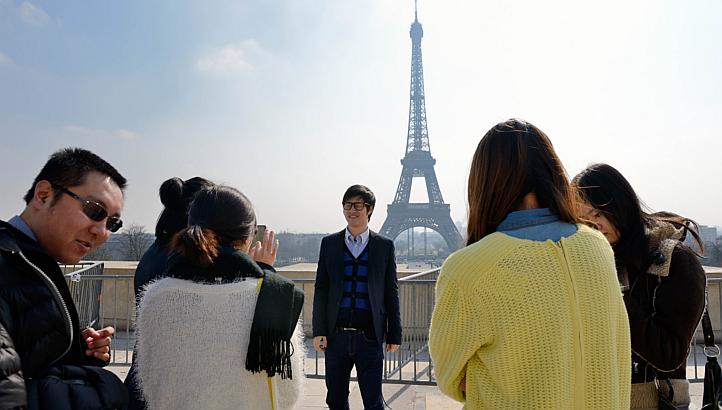A strange form of culture shock, or something more? The Wikiworm uncovers more odd goings on, courtesy of this week’s weird Wikipedia article…
Paris syndrome (French: Syndrome de Paris, Japanese: Pari shōkōgun) is a transient psychological disorder encountered by some individuals visiting or vacationing in Paris, France or elsewhere in Western Europe. It is characterized by a number of psychiatric symptoms such as acute delusional states,hallucinations, feelings of persecution (perceptions of being a victim of prejudice, aggression, or hostility from others), derealization, depersonalization, anxiety, and also psychosomatic manifestations such as dizziness, tachycardia, sweating, and others. Similar syndromes include Jerusalem syndrome and Stendhal syndrome.
Japanese visitors are observed to be especially susceptible. It was first noted in Nervure, the French journal of psychiatry in 2004. From the estimated six million yearly visitors, the number of reported cases is not significant: according to an administrator at the Japanese embassy in France, around twenty Japanese tourists a year are affected by the syndrome. The susceptibility of Japanese people may be linked to the popularity of Paris in Japanese culture, notably the idealized image of Paris prevalent in Japanese advertising.
Mario Renoux, the president of the Franco-Japanese Medical Association, states in Libération’s article, “Des Japonais entre mal du pays et mal de Paris” (Translation: The Japanese are caught between homesickness and Paris sickness) (December 13, 2004), and that Japanese magazines are primarily responsible for creating this syndrome. Renoux indicates that Japanese media, magazines in particular, often depict Paris as a place where most people on the street look like fashion models and most women dress in high-fashion brands.
The authors of the article, in the 2012 French psychiatry journal Nervure, cite the following as contributory factors:
- Language barrier – few Japanese speak French and vice versa. This is believed to be the principal cause and is thought to engender the remainder. Apart from the obvious differences between French and Japanese, many everyday phrases and idioms are shorn of meaning and substance when translated, adding to the confusion of some who have not previously encountered such.
- Cultural difference – the large difference between not only the languages but the manner. The French can communicate on an informal level in comparison to the rigidly formal Japanese culture, which proves too great a difficulty for some Japanese visitors. It is thought that it is the rapid and frequent fluctuations in mood, tense and attitude, especially in the delivery of humour, which cause the most difficulty.
- Idealised image of Paris – it is also speculated as manifesting from an individual’s inability to reconcile a disparity between the Japanese popular image and the reality of Paris.
- Exhaustion – the over-booking of one’s time and energy, whether on a business trip or on holiday, in attempting to cram too much into every moment of a stay in Paris, along with the effects of jet lag, all contribute to the psychological destabilization of some visitors.
Professor Hiroaki Ota, a Japanese psychiatrist working in France, is credited as the first person to diagnose the condition in 1986. However, later work by Youcef Mahmoudia, physician with the hospital Hôtel-Dieu de Paris, indicates that Paris syndrome is “a manifestation of psychopathology related to the voyage, rather than a syndrome of the traveller.” He theorized that the excitement resulting from visiting Paris causes the heart to accelerate, causing giddiness and shortness of breath, which results in hallucinations in the manner similar to the Stendhal syndrome described by Italian psychologist Graziella Magherini in her book La sindrome di Stendhal.












In Humboldt’s Gift, the narrator remarks that once you had read Freud’s The Psychopathology of Everyday Life, you realized that everyday life was psychopathology. Apart from that, psychological diagnostic criteria remind me, now and then, of grammars that include “the genitive of [this or that]”, which might more candidly be called “the genitive of line x of book y in The Iliad, which we can’t otherwise account for.”
But if anyone needs a guinea pig for test of the Paris syndrome or Stendhal syndrome, send me a ticket. However, an American may not be the best test case for the former, given our willingness to push the boundaries of informality.